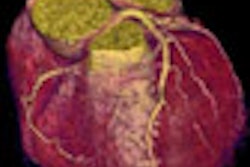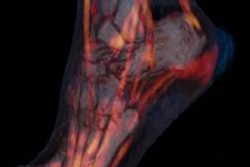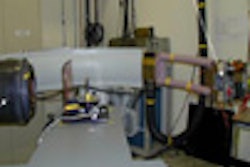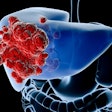While colorectal cancer is the second leading cause of death in the U.S., less than half of screening age individuals over 50 are examined for the disease. Conventional and virtual colonoscopy both generally require a cathartic bowel preparation, though in recent years some VC investigators have found good results with a reduced-prep formula that substitutes strong laxatives for minor dietary changes with the ingestion of oral fecal and fluid tagging agents.
A new survey study suggests that eliminating the cathartic bowel preparation might improve compliance rates for colorectal cancer (CRC) screening. But the answers may not predict patients' real interest in screening, and the minimal-prep approach is not without complications, cautioned a radiologist experienced in virtual colonoscopy screening.
The Mayo Clinic College of Medicine in Rochester, MN, conducted a mail and telephone survey of 1,636 individuals 18 and older in 2005 to investigate whether eliminating the laxative preparation would improve CRC screening rates. Though there was a 49% response rate, study authors Timothy Beebe, Ph.D., and colleagues focused on the 759 responses from individuals 50 years and older (Mayo Clinic Proceedings, June 2007, Vol. 82:6, pp. 666-671).
The results showed that nearly one-third (32%) of these survey respondents identified the laxative prep as the most troublesome part of CRC screening, the researchers reported.
"Overall, the self-reported likelihood and anticipated timing of examination increase when the laxative preparation is removed," they wrote in their abstract. "Both univariate and multivariate analysis showed that the odds of being 'much more likely' to undergo screening in the future with a test that does not include a laxative preparation are greatest among those who have been tested previously, regard the laxative preparation as a big problem, or both."
The authors concluded that laxative bowel preparation was the major disincentive for screening, and that "laxative-free" virtual colonoscopy may represent an attractive option for these patients, removing a common disincentive to screening.
In an editorial response to the study, Dr. Perry Pickhardt from the University of Wisconsin Medical Center in Madison applauded the potential gain in screening participants that might come with a reduced-prep exam. But he cautioned that such tests present a number of potential drawbacks that may temper the actual benefits in terms of increased participation and effective resource use.
Potential drawbacks of reduced-prep VC begin with the fact that such exams are hardly prepless, but rather require rather rigorous dietary changes, such as the temporary elimination of dietary fiber and the ingestion of oral contrast agents approximately two days before imaging.
"Because of the cathartic-like effect of oral contrast agents such as diatrizoate, use of the terms noncathartic or minimal prep is questionable," Pickhardt wrote in the editorial. "Such noncathartic preparations may also extend for 48 hours or longer, perhaps resulting in a process that is equally or even more onerous than some low-volume cathartic regimens currently in use (Mayo Clinic Proceedings, June 2007, Vol. 82:6, 659-661).
Survey respondents may have mistakenly believed that they could eliminate the prep entirely, Pickhardt wrote, and the fact that respondents who had undergone a previous screening exam were the most amenable to the idea of reduced-prep suggests that the survey results may not apply to the largest potential group of screening subjects: those who have never been screened.
The preference for actual noncathartic versus cathartic preparations should be evaluated before the results of such as survey can be relied on, he added.
"Because residual stool is widely recognized as a major source of potential error at CT colonography (or VC), the effect of a laxative-free approach on polyp detection accuracy is an important concern," Pickhardt wrote. "The use of oral contrast agents for tagging residual stool and fluid will reduce both false-positive and false-negative results somewhat but will certainly not eliminate them. Any additional false-positive results caused by withholding the laxative would lead to unnecessary colonoscopy, which is not only inconvenient and lacks benefit but also leads to higher costs and increased procedural risks."
Patients who are referred for conventional colonoscopy after VC for any reason would need to undergo an additional full bowel prep on a separate day, Pickhardt wrote. Laxatives used for bowel cleaning have a good safety profile.
"Although it may initially appear counterintuitive, the noncathartic approach to CT colonography may in fact turn out to be more onerous overall than a low-volume preparation that incorporates laxatives, especially for patients with positive findings on examination," he wrote.
By Eric Barnes
AuntMinnie.com staff writer
June 20, 2007
Related Reading
Noncathartic bowel prep facilitates, complicates virtual colonoscopy, June 15, 2007
Prepless VC yields high sensitivity in average-risk subjects, June 10, 2007
New developments improve VC -- and colonoscopy, April 6, 2007
Prepless VC misses some diminutive flat lesions, January 17, 2006
Iodine tagging regimen yields best VC results, January 27, 2005
Copyright © 2007 AuntMinnie.com



















